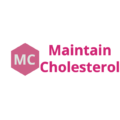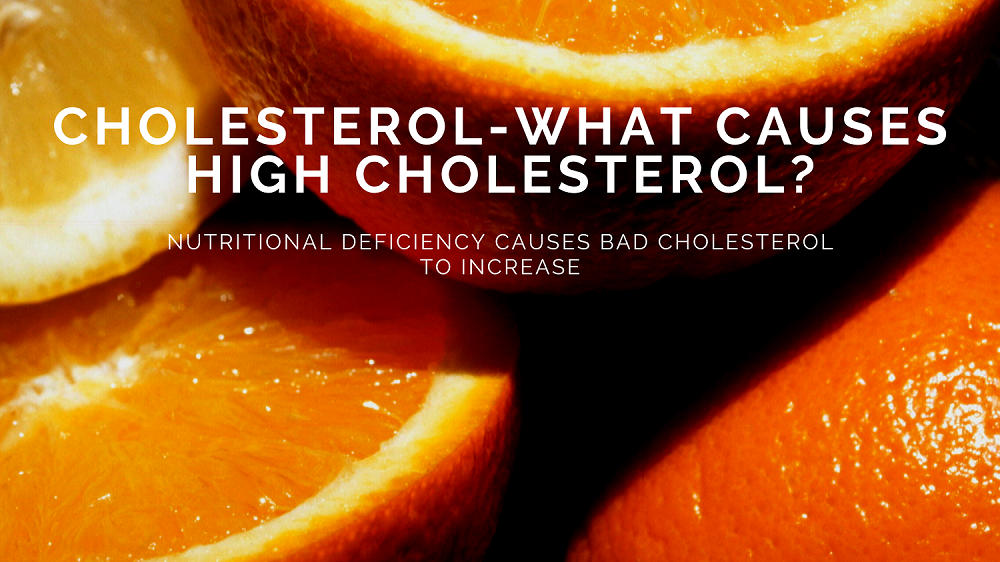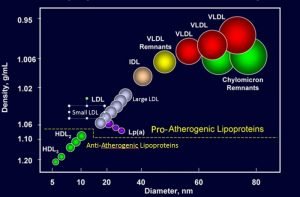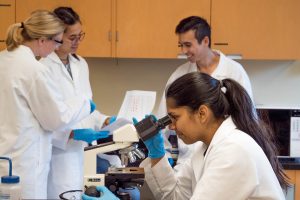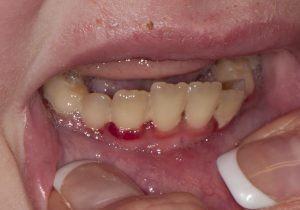Table of Contents
Introduction
Do you know really what causes high cholesterol? Saturated fats, unsaturated fats as causing high cholesterol is untrue. Nutritional deficiency causes the arteries to weaken and triggers cholesterol levels to increase including lp(a) levels. Millions of people are suffering from elevated blood levels of cholesterol, triglycerides, LDL (low density lipoprotein, lipoprotein (a) and other risk factors.
What is cholesterol?
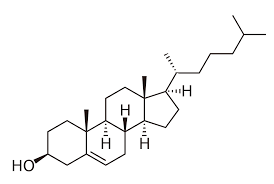
Cholesterol is a waxy steroid and is transported in the blood plasma of all animals. It is the main sterol synthesized by animals. Cholesterol is a lipid (fat) which is produced by the liver. Cholesterol is vital for normal body function. Every cell in our body has cholesterol in its outer layer.
What are the functions of cholesterol?
Below is a list of the important functions of cholesterol:
- It builds and maintains cell membranes.
- It is essential for determining which molecules can pass into the cell and which cannot (cell membrane permeability).
- It is involved in the production of sex hormones (androgens and estrogens).
- It is essential for the production of hormones released by the adrenal glands (cortisol, corticosterone, aldosterone, and others).
- It aids in the production of bile.
- It converts sunshine to vitamin D, which among other things is said to have cardiovascular benefits. However, scientists at Rockefeller University were surprised to find that taking vitamin D supplements did not reduce the risk of cholesterol-related cardiovascular disease.
- It is important for the metabolism of fat soluble vitamins, including vitamins A, D, E, and K.
- It insulates nerve fibers.
How cholesterol is transported in the blood
Cholesterol is insoluble in nature and is made soluble by attaching soluble protein molecules to it. The soluble form of Cholesterol is called as lipoproteins. A lipoprotein is any complex or compound containing both lipid (fat) and protein. The three main types are:
- LDL (low density lipoprotein) – people often refer to it as bad cholesterol. LDL carries cholesterol from the liver to cells. If too much is carried (too much for the cells to use) there can be a harmful buildup of LDL.
People with high levels of LDL have a greater risk for arterial disease. Most human blood contains approximately 70% LDL, although this may vary, depending on the person. - HDL (high density lipoprotein) – people often refer to it as good cholesterol. Experts say HDL prevents arterial disease. HDL does the opposite of LDL – HDL takes the cholesterol away from the cells and back to the liver. In the liver it is either broken down or expelled from the body as waste.
- Triglycerides – these are the chemical forms in which most fat exists in the body, as well as in food. They are present in blood plasma. Triglycerides, in association with cholesterol, form the plasma lipids (blood fat).
Triglycerides in plasma originate either from fats in our food, or are made in the body from other energy sources, such as carbohydrates. Calories we consume but are not used immediately by our tissues are converted into triglycerides and stored in fat cells.
When your body needs energy and there is no food as an energy source, triglycerides will be released from fat cells and used as energy – hormones control this process.
What are normal cholesterol levels?
The amount of cholesterol in human blood can vary from 3.6 mmol/liter to 7.8 mmol/liter. The Government of Alberta in Canada says that any reading over 6 mmol/liter is high and will significantly raise the risk of arterial disease.
Below is a list of cholesterol levels and how most doctors would categorize them in mg/dl (milligrams/deciliter) and 5mmol/liter (millimoles/liter).
- Desirable – Less than 200 mg/dL.
- Bordeline high – 200 to 239 mg/dL.
- High – 240 mg/dL and above.
- Optimum level: less than 5mmol/liter.
- Mildle high cholesterol level: between 5 to 6.4mmol/liter.
- Moderately high cholesterol level: between 6.5 to 7.8mmol/liter.
- Very high cholesterol level: above 7.8mmol/liter.
Dangers of high cholesterol levels
High cholesterol levels can cause:
- Atherosclerosis – narrowing of the arteries.8
- Higher coronary heart disease risk – an abnormality of the arteries that supply blood and oxygen to the heart.9
- Heart attack – occurs when the supply of blood and oxygen to an area of heart muscle is blocked, usually by a clot in a coronary artery. This causes your heart muscle to die.10
- Angina – chest pain or discomfort that occurs when your heart muscle does not get enough blood.11
- Stroke and mini-stroke – occurs when a blood clot blocks an artery or vein, interrupting the flow to an area of the brain. Can also occur when a blood vessel breaks. Brain cells begin to die.12
If both blood cholesterol and triglyceride levels are high, the risk of developing coronary heart disease rises significantly.
What Causes High Cholesterol?
The reason for increase in cholesterol levels and high blood pressure is best explained by modern cellular health.
Our body has trillions of cells and each cell functions optimally only if:
- Each cell gets all the nutrients that it needs for its proper functioning. Absence of any nutrient will affect its functioning.
- Each cell must get each nutrient in the adequate amount for its proper functioning. If any nutrient is obtained in inadequate amount its function gets affected.
- The pH of each cell must be maintained slightly on the alkaline side. The optimum pH for each cell to function lies between pH7.4 to pH7.5. Any shift in the blood or body pH affects the performance of the cells. All the metabolic processes carried out in the body are all enzymatic reactions and all enzymatic reactions are pH specific.
Under ideal conditions as mentioned above:
- Our health remains good, free from any diseases.
- The above blood factors (normal cholesterol levels) are ideal repair factors and help keep arterial walls remain healthy. There will not be any arterial plaque deposition.
- Clean arteries are a sign of good health.
Under non-ideal conditions as mentioned above:
- Our health gets affected. We fall sick and suffer from some disease or the other.
- If the above conditions are deviated, the arterial walls get weakened. A chronic weakness of the arterial walls increases the demand for production of these repair molecules in the liver.
- An increased production of these repair molecules of cholesterol and other repair factors in the liver increases the levels of these molecules in the bloodstream and over time renders them risk factors for cardiovascular disease.
- Levels of certain factors like lipoprotein (a), a molecule similar to LDL, increases. It is more atherogenic and binds to the walls of the affected arteries forming arterial plaque.
- Sometimes levels of C-reactive protein and homocysteine levels also increase.
Why the ideal conditions cannot me met?
It is very difficult to meet all the above ideal conditions of nutrition for the following reasons:
We may not be providing all the nutrients because all the nutrients are not present in a single source of food.
The food we eat may not contain the nutrients in adequate amount. For example, the American diet is poor in Magnesium because the American soil is deficient in magnesium.
Some people neglect eating certain types of foods because they do not like it for some reason or the other or due to non availability.
Some people have the habit of eating monotonous food which provides only particular types of nutrients.
Not eating plenty of fruits and vegetables also makes the person deficient in certain nutrients, specially the trace minerals which are very essential for enzymatic reactions.
If a balanced diet is not eaten, the blood pH cannot be maintained on the alkaline side. Hence the body pH becomes acidic and becomes susceptible to infection or inflammation sets in. Acidosis leads to constipation and various toxins accumulate in the body. Slowly over a period of time chronic diseases set in.
Lack of exercise, smoking, alcohol consumption is some of the other factors that affect our health.
Theories to Explain What Causes High Cholesterol, Blood Pressure and Heart Disease?
There are mainly three ways in which the true cause of high cholesterol levels, cause of high blood pressure and the true cause of heart disease can be explained.
1) Nutritional deficiency :
Nutritional deficiency, especially deficiency of ascorbic acid (Vitamin C) is the main cause of high cholesterol levels, high blood pressure and heart disease. This is because ascorbic acid is involved in collagen synthesis and collagen is the main constituent of blood vessels. In absence of ascorbic acid lesions are formed in the walls of the blood vessels. As natures repair mechanism, the liver produces increased amount of LDL cholesterol and lipoprotein (a). This leads to altered cholesterol levels, atherosclerosis, high blood pressure and under extreme conditions heart attack may result.
This theory was proposed by none other than the Twice winner of the Noble Prize, Dr Linus Pauling and Dr Matthias Rath. This theory is also called as Pauling Therapy, Nutritional therapy or Cellular therapy. Dr Matthias Rath prefers to call it as Cellular Therapy. According to this theory it is high lipoprotein (a) levels that cause atherosclerosis and heart disease. Avoiding fats and cholesterol rich food does not lower lipoprotein (a) levels. Lowering or reducing lipoprotein (a) levels is the true solution for normalizing cholesterol levels.
Where can I find the information about nutrient deficiency as cause of heart disease?
The following books is a must read to know the true cause of high cholesterol and heart disease and how to have a true treatment for cardiovascular diseases:
Eradicating Heart Disease:
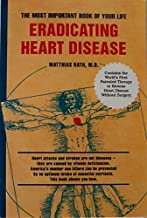
Why Animals Don’t Get Heart Disease?
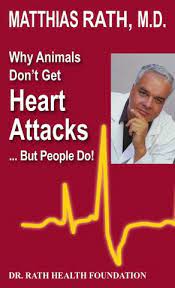
2) Inflammation as the Cause of Heart Disease
Some doctors try to explain the cause of atherosclerosis as due to inflammation. Inflammation of the arteries is often seen in most of the patients suffering from heart disease. Another blood factor called C-reactive factor is often present in some patients suffering from heart disease.
However, it should be noted that C-reactive protein is an inflammatory marker. C-reactive protein levels also increase during infection.
Inflammation takes place when the body is acidic. A person suffering from acidosis is at the risk of infection. Infection then leads to inflammation.
3) Acidosis
Acidosis is a condition when our body pH is acidic. Under conditions of nutrient deficiency, the body cannot maintain ideal pH conditions of 7.4 to 7.5. So, the basic cause of any disease is acidosis.
Whether the Pauling therapy is correct or Inflammation theory of heart disease is correct can best be explained by Acidosis & Nutritional deficiency.
Treatment options for high cholesterol levels and heart disease
Now we know that high cholesterol levels is caused by nutrient deficiency, inflammation and acidosis. Other factors like smoking cigarette, drinking alcohol, lack of physical inactivity, obesity and eating unhealthy diet also contributes to the cause of high cholesterol to a certain extent.
The aim should be to follow any treatment protocol to lower cholesterol that:
- Keeps your arteries clean.
- Keeps collagen synthesis healthy.
- Keeps your digestive system healthy.
- Keeps your body pH between 7.4 to 7.5
- Provides the desired nutrients (vitamins, minerals & amino acids) to the body
The Perfect Solution for High Cholesterol
Nutritional therapy offers the best solution for lowering high cholesterol as well as lowering lipoprotein(a) and reversing heart disease.
RELATED ARTICLES
Why animal don’t get heart attacks but people do?
The Pauling Therapy Essentials Formula Review
Can Turmeric Reverse Heart Disease?
This is how you can lower lipoprotein(a) naturally!
Reduce lipoprotein(a) with niacin er
Summary
Ask anyone what causes high cholesterol? >90% of people will say “due to eating saturated fats and cholesterol rich foods”. Deficiency of micronutrients is what causes high cholesterol. Obviously the ultimate solution to lower high cholesterol is nutritional therapy.
I hope the above information on what causes high cholesterol levels, high blood pressure and heart disease, is useful to you. The formula based on “Pauling Therapy” & “Lypro-c” is useful in normalizing your cholesterol levels and lead a healthy life.
